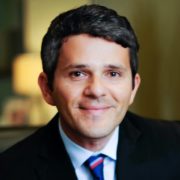USCIS recently informed representatives of the American Immigration Lawyers Association that about 40,000 asylum cases are currently pending at its asylum offices throughout the US An estimated 28,000 of those 40,000 were filed last year alone.
Asylum applicants are frustrated, and sometimes perplexed – some applicants are called in for an interview within one month of filing, while others have been waiting for over one year.
According to the USCIS Asylum Headquarters, the processing times are not expected to see significant progress until the Fall of 2014. There are a number of factors leading to the current backlog, and USCIS is trying to address the issue. We have compiled a list of Frequently Asked Questions below, in hopes of providing insight into the situation.
Note that this article pertains to “Affirmative Asylum” applications – that is, those submitted voluntarily to the USCIS by an applicant, and not “Defensive Asylum” applications – those presented in Immigration Court as a defense to removal from the United States.
Why is there a backlog?
The simple answer is that over the last two-to-three years, there has been a significant increase in people applying for asylum in the US, stretching the resources of asylum offices.
There are three different types of asylum interviews that asylum officers conduct: 1) Credible Fear Cases (when a person attempting to enter the US tells a Customs and Border Protection Officer at the border that they have a fear of returning to their home country and an asylum officer must conduct an interview to determine whether the fear is credible; 2) Reasonable Fear Cases (when an individual is on the verge of removal from the US, but requests protection because of a “reasonable possibility” of persecution in their home country; and 3) ‘Regular’ Asylum Cases (when an individual files their case with the USCIS and awaits an interview at an asylum office).
The current backlog exists because of a significant rise in all three of the above-referenced types of cases. The civil war in Syria, the simmering conflict in Ukraine, persecution of individuals based on their religious beliefs or sexual orientation are some examples of circumstances which lead individuals to seek asylum.
Who seeks asylum in the US?
According to recent data from USCIS the top five countries of nationality for individuals seeking affirmative asylum in the US are (in order): China, Mexico, Egypt, Guatemala and Syria. Over the last year, the Los Angeles office consistently received the highest number of applications (accounting for between 20-25% of all nationwide filings).
How is the backlog being addressed?
USCIS has been hiring a significant number of Asylum Officers in recent years to address the backlog. Approximately 300 new officers have been hired and are undergoing training. The hiring of close to 370 additional asylum officers has also been authorized, according to information collected by the American Immigration Lawyers Association.
Why are some cases interviewed quickly, but not others?
Asylum offices are working hard to try to comply with a 60-day timeframe for scheduling an interview. Newly filed cases are selected randomly by computer for an interview. If a newly filed case is chosen, the applicant is interviewed, sometimes rather soon after filing. If the case is not chosen for interview, it is placed into the large backlog of other cases, and continues to await random selection for interview scheduling.
If an asylum interview is scheduled, can it be re-scheduled by an applicant?
In the current climate, if a case is scheduled for an interview, the applicant should try, if at all possible. to attend—rather than seek rescheduling. Rescheduling may cause the case to re-enter the backlog and the applicant will wait many months for a second interview date. Our Office took on a case where the initial interview was scheduled for July 2013, but the applicant requested rescheduling because the applicant’s interpreter had a schedule conflict. That applicant was not rescheduled for their follow-up interview until March of 2014.
Is an asylum applicant able to receive work authorization while their case is pending in the backlog?
An asylum applicant can apply for work authorization after their asylum application has been pending for 150 days. Note that if an applicant requests that USCIS reschedule their interview – a bad idea(!) – the “clock” on the 150 days is stopped.
Can an asylum applicant travel out of the US while their case is pending in the backlog?
An asylum applicant needing to travel outside of the US should obtain an Advance Parole document from USCIS before doing so. Otherwise, traveling without advance parole is considered an abandonment of the asylum application. The asylum applicant and their dependents should not travel to their home country, as doing so would severely complicate the prospects for the pending application.
Can an asylum application subject to the backlog be expedited?
Under certain compelling circumstances, USCIS might schedule an interview aside from normal processing. The immigration attorney on the case needs to carefully document the circumstancing warranting an expedite request. Due to the high volume of such requests, USCIS has indicated that not all can be accommodated.
***
Atty. Khurgel is a former USCIS and Department of State Embassy Officer with over ten years of government service and private immigration practice experience. His offices are located in Irvine, California.







